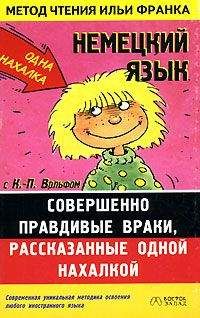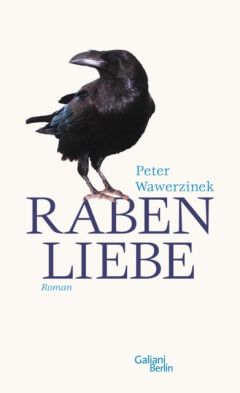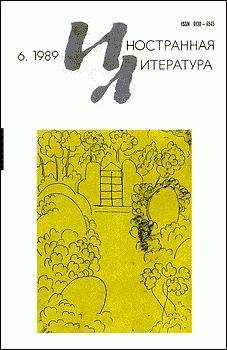Уильям Моэм - Английский язык с У. С. Моэмом. На окраине империи. Рассказы
desperately ['desp(q)rItlI], resign [rI'zaIn], confidant ['kOnfIdxnt, "kOnfI'dxnt], impair [Im'peq], value ['vxlju:]
Both of them fell desperately in love with her, but Bateman saw quickly that she had eyes only for Edward, and, devoted to his friend, he resigned himself to the role of confidant. He passed bitter moments, but he could not deny that Edward was worthy of his good fortune, and, anxious that nothing should impair the friendship he so greatly valued, he took care never by a hint to disclose his own feelings. In six months the young couple were engaged.
But they were very young and Isabel's father decided (но они были очень молоды, и отец Изабеллы решил) that they should not marry at least till Edward graduated (что им не следует жениться, во всяком случае, до тех пор, пока Эдвард не окончит колледж). They had to wait a year (им надо было подождать целый год). Bateman remembered the winter at the end of which Isabel and Edward were to be married (Бейтман помнил ту зиму, в конце которой Изабелла и Эдвард должны были пожениться), a winter of dances and theater-parties and of informal gaieties (зиму /полную/ танцев, походов в театр и веселых развлечений; informal— неофициальный; непринужденный;gaiety— веселье; развлечения) at which he, the constant third, was always present (на которых он, верный третий /друг/, всегда присутствовал; constant— постоянный, непрерывный; постоянный, неизменный). He loved her no less because she would shortly be his friend's wife (он не /стал/ любить ее меньше из-за того, что она вскоре станет женой его друга); her smile (ее улыбка), a gay word she flung him (веселое словечко, брошенное ему; to fling), the confidence of her affection (ее доверчивая привязанность; confidence— доверие;affection— любовь, чувство близости, привязанность), never ceased to delight him (никогда не переставали радовать его; to delight— доставлять наслаждение, восхищать); and he congratulated himself, somewhat complacently, because he did not envy them their happiness (и он гордился собой, немного самодовольно, потому что он не завидовал их счастью; to congratulate — поздравлять; to congratulate oneself — радоваться /своему достижению/, гордиться).
graduate ['grxdZVeIt], gaiety ['geIqtI], complacently [kqm'pleIs(q)ntlI]
But they were very young and Isabel's father decided that they should not marry at least till Edward graduated. They had to wait a year. Bateman remembered the winter at the end of which Isabel and Edward were to be married, a winter of dances and theater-parties and of informal gaieties at which he, the constant third, was always present. He loved her no less because she would shortly be his friend's wife; her smile, a gay word she flung him, the confidence of her affection, never ceased to delight him; and he congratulated himself, somewhat complacently, because he did not envy them their happiness.
Then an accident happened (затем случилась катастрофа). A great bank failed (один крупный банк потерпел крах; great — большой; крупный, значительный, to fail — не суметь сделать что-либо; провалиться/на экзамене/;терпеть крах, обанкротиться, прекратить платежи), there was a panic on the exchange (на бирже была паника; exchange — обмен, мена; биржа), and Edward Barnard's father found himself a ruined man (отец Эдварда Барнарда оказался разоренным; to find oneself in a state — оказаться, очутиться в каком-либо положении; to ruin — разрушать; разорять). He came home one night (однажды вечером он пришел домой), told his wife that he was penniless (сказал своей жене, что у него нет ни гроша), and after dinner, going into his study, shot himself (и после ужина, удалившись в свой кабинет, застрелился; study — изучение; рабочий кабинет/в квартире/; to shoot — стрелять).
A week later, Edward Barnard, with a tired, white face (неделю спустя Эдвард Барнард, с утомленным, бледным лицом), went to Isabel and asked her to release him (пришел к Изабелле и попросил ее расторгнуть помолвку: «освободить его /от обязательства жениться/»; to release — освобождать; избавлять/от обязательств и т. п./). Her only answer was to throw her arms round his neck (вместо ответа она бросилась ему на шею: «она обвила своими руками его шею»; answer — ответ; ответное действие, ответная реакция; to throw — бросать, кидать) and burst into tears (и расплакалась; to burst into smth. — давать выход чувствам; to burst — лопнуть; взорваться;разразиться).
"Don't make it harder for me, sweet (не делай ситуацию еще более сложной /для меня/, любимая; sweet— сладкий; любимый, милый, дорогой)," he said.
"Do you think I can let you go now (ты думаешь, что я позволю тебе сейчас уйти)? I love you."
"How can I ask you to marry me (как я могу просить тебя выйти за меня замуж; to ask— спрашивать; просить)? The whole thing's hopeless (все это безнадежно). Your father would never let you (твой отец никогда не позволит тебе). I haven't a cent (у меня нет ни цента)."
"What do I care (да какая разница; to care— заботиться; беспокоиться; придавать значение)? I love you."
accident ['xksId(q)nt], ruined ['ru: Ind], penniless ['penIlIs]
Then an accident happened. A great bank failed, there was a panic on the exchange, and Edward Barnard's father found himself a ruined man. He came home one night, told his wife that he was penniless, and after dinner, going into his study, shot himself.
A week later, Edward Barnard, with a tired, white face, went to Isabel and asked her to release him. Her only answer was to throw her arms round his neck and burst into tears.
"Don't make it harder for me, sweet," he said.
"Do you think I can let you go now? I love you."
"How can I ask you to marry me? The whole thing's hopeless. Your father would never let you. I haven't a cent."
"What do I care? I love you."
He told her his plans (он рассказал ей о своих планах). He had to earn money at once (он должен немедленно заработать денег), and George Braunschmidt, an old friend of his family, had offered to take him into his own business (и Джордж Брауншмидт, старый друг семьи, предложил взять его в свой бизнес). He was a South Sea merchant (он вел торговлю в южных морях; merchant — купец, оптовый торговец), and he had agencies in many of the islands of the Pacific (и у него были представительства на многих островах Тихого океана). He had suggested that Edward should go to Tahiti for a year or two (он предложил, что Эдвард должен поехать на Таити, на год или два), where under the best of his managers he could learn the details of that varied trade (где под /началом/ его лучших менеджеров он мог бы обучиться всем секретам этого изменчивого бизнеса: «подробностям этого меняющегося ремесла»; detail — деталь, подробность), and at the end of that time he promised the young man a position in Chicago (и по окончании этого времени он обещал молодому человеку место в Чикаго). It was a wonderful opportunity (это была удивительная возможность), and when he had finished his explanations Isabel was once more all smiles (и когда он закончил свои объяснения, у Изабеллы снова был очень довольный вид; smile — улыбка).
merchant ['mWtS(q)nt], opportunity ["Opq'tju: nItI], explanation ["eksplq'neIS(q)n]
He told her his plans. He had to earn money at once, and George Braunschmidt, an old friend of his family, had offered to take him into his own business. He was a South Sea merchant, and he had agencies in many of the islands of the Pacific. He had suggested that Edward should go to Tahiti for a year or two, where under the best of his managers he could learn the details of that varied trade, and at the end of that time he promised the young man a position in Chicago. It was a wonderful opportunity, and when he had finished his explanations Isabel was once more all smiles.
"You foolish boy, why have you been trying to make me miserable (ах ты глупыш, зачем же ты пытался сделать меня несчастной)?"
His face lit up at her words and his eyes flashed (от ее слов лицо его просияло и глаза засверкали; to light up — зажигать; освещать, озарять).
"Isabel, you don't mean to say you'll wait for me (Изабелла, ты что, хочешь сказать, что будешь ждать меня; to mean— намереваться; подразумевать, иметь в виду)?"
"Don't you think you're worth it (а тебе кажется, что ты этого не достоин)? " she smiled (улыбнулась она).
"Ah, don't laugh at me now (ах, не смейся надо мною сейчас). I beseech you to be serious (умоляю тебя, будь серьезной). It may be for two years (это может /растянуться/ на два года)."
"Have no fear (не бойся). I love you, Edward. When you come back I will marry you (когда ты вернешься, я выйду за тебя замуж)."
miserable ['mIz(q)rqb(q)l], beseech [bI'si: tS], serious ['sI(q)rIqs]
"You foolish boy, why have you been trying to make me miserable?"
His face lit up at her words and his eyes flashed.
"Isabel, you don't mean to say you'll wait for me?"
"Don't you think you're worth it?" she smiled.
"Ah, don't laugh at me now. I beseech you to be serious. It may be for two years."
"Have no fear. I love you, Edward. When you come back I will marry you."
Edward's employer was a man who did not like delay (работодатель Эдварда был человеком, не терпящим проволочек: «который не любил промедления»; delay — задержка; замедление, проволочка) and he had told him that if he took the post (и сказал ему, что если тот принимает /предложенную/ работу; post — пост, должность) he offered he must sail that day week from San Francisco (он предлагает ему отплыть из Сан-Франциско /в тот же день/ через неделю). Edward spent his last evening with Isabel (свой последний вечер Эдвард провел с Изабеллой). It was after dinner that Mr. Longstaffe, saying he wanted a word with Edward (а после ужина мистер Лонгстаф, сказав, что он хочет поговорить с Эдвардом; word — слово; речь, разговор), took him into the smoking-room (увел его /с собой/ в курительную комнату). Mr. Longstaffe had accepted good-naturedly the arrangement which his daughter had told him of (мистер Лонгстаф доброжелательно воспринял ту договоренность, о которой ему рассказала дочь; arrangement — приведение в порядок; договоренность, соглашение) and Edward could not imagine what mysterious communication he had now to make (и Эдвард не мог себе представить, о чем же таком таинственном тот хотел с ним поговорить; communication — передача/мыслей, сообщений и т. п./). He was not a little perplexed to see that his host was embarrassed (он был немало озадачен, видя, что его собеседник был смущен; host — хозяин/по отношению к гостю/). He faltered (тот запинался; to falter— спотыкаться; запинаться, говорить неуверенно). He talked of trivial things (он говорил о пустяках; trivial — незначительный, пустой). At last he blurted it out (наконец, он выпалил).
employer [Im'plOIq], accept [qk'sept], mysterious [mI'stI(q)rIqs], perplexed [pq'plekst], embarrass [Im'bxrqs], trivial ['trIvIql]
Edward's employer was a man who did not like delay and he had told him that if he took the post he offered he must sail that day week from San Francisco. Edward spent his last evening with Isabel. It was after dinner that Mr. Longstaffe, saying he wanted a word with Edward, took him into the smoking-room. Mr. Longstaffe had accepted good-naturedly the arrangement which his daughter had told him of and Edward could not imagine what mysterious communication he had now to make. He was not a little perplexed to see that his host was embarrassed. He faltered. He talked of trivial things. At last he blurted it out.



